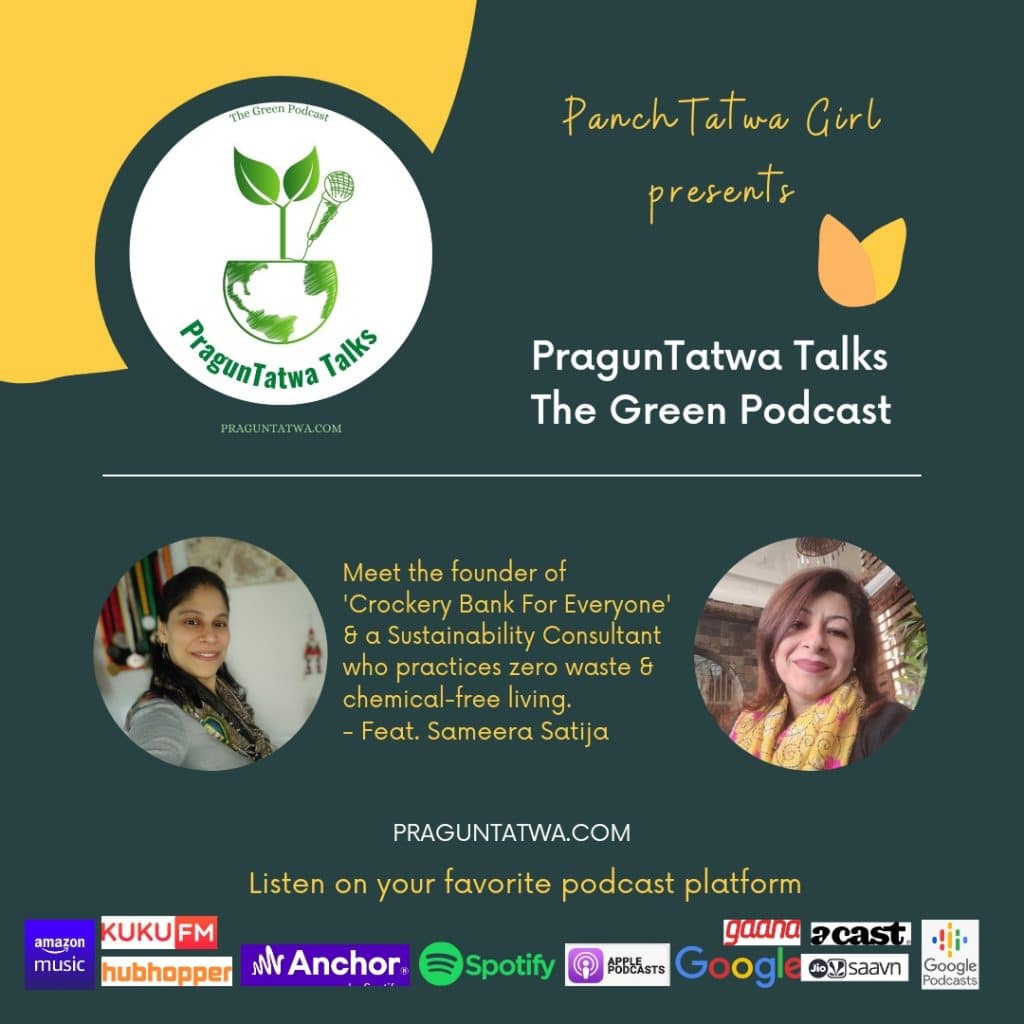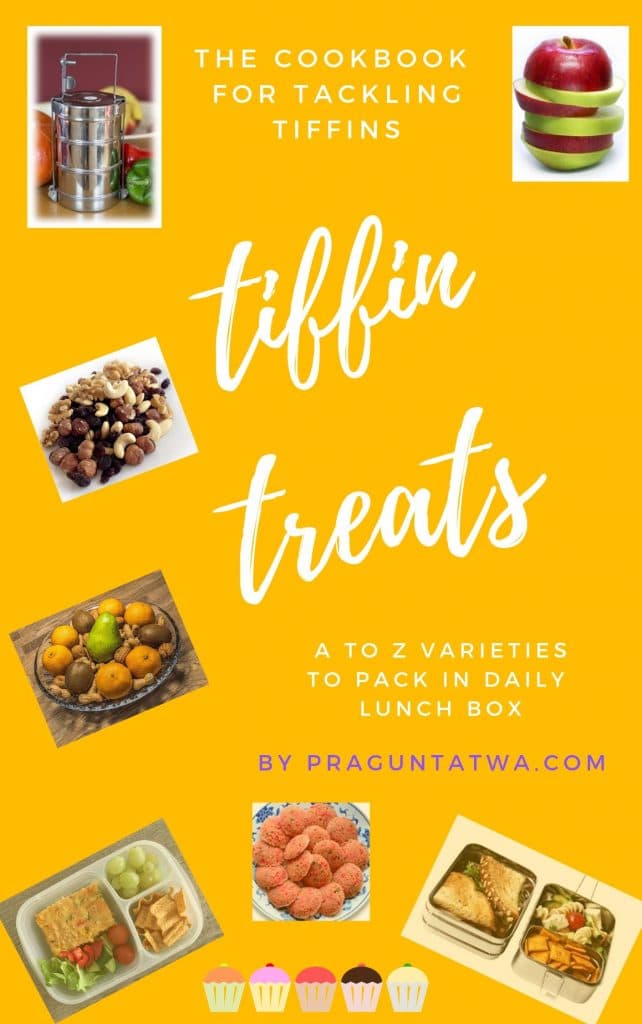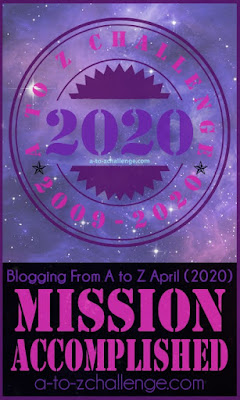Green Talks Ep 37 – Meet a sustainability consultant who practices zero waste and chemical free living. Feat – Sameera Satija

“Sustainability is no longer about doing less harm. It’s about doing more good.”
Jochen Zeitz
Sustainable living means we prioritize the use of natural and renewable resources instead of creating excess waste and depleting environmental resources for future generations. Sustainable living is a lifestyle, practice, and philosophy. And in the face of an increasingly threatened and rapidly degenerating earth, it can often feel as if a single human’s small choice can’t make a big enough change. But it’s the accumulation and transmission of these choices—from opting for cloth wipes instead of tissue rolls —that can make all the difference.
Every day we make choices in our lives that affect the environment, the climate, and other species. Plastic never goes away. At least 14 million tons of it ends up in the ocean annually, making up 80% of all marine debris. Every year thousands of seabirds, sea turtles, seals, and other marine mammals are killed after ingesting plastic or getting tangled up in it. You can start cutting down on your plastic waste in a few simple steps: Use reusable bags when you shop, ditch single-use water bottles, bags, and straws, and avoid products made from or packaged in plastic whenever possible. Switch from single-use/ disposable to reusable and bio-degradable products every chance you get — every piece of plastic avoided is a win for the planet.
Refuse Single-Use Plastic
Do you have a party, get-together, or social gathering at your place? Going to buy disposable cutlery? Wait! Hold! Think again!
Single-use plastics are made from plastics and are meant to be used only once and then thrown away. They include disposable items like plastic cutlery, plastic straws, water bottles, plates, bowls, and most food packaging. Disposable and single-use plastic after use is only piling up the landfills, choking the water bodies, and creating devastating impacts on our planet Earth.
Reducing plastic use is the most effective means of avoiding this waste. So before you plan a get-together first look for alternatives to single-use plastic products. There are many substitutes available for disposables. Pattal, Aracia, Steel, Wooden, and other sustainable alternatives.
One such alternative is steel crockery and you can get it from A Crockery Bank. A “crockery bank for everyone” seems to refer to a concept where a community or organization provides a platform or facility where people can borrow or lend crockery items, such as plates, bowls, glasses, and other kitchenware, as needed. The idea behind such a bank is to promote sustainability, reduce waste, and help people who may not have access to their own crockery.
Having steel utensils to eat food, as well as cook food can also have a positive impact on health. Steel does not erode or leach harmful chemicals during cooking. It’s durable, sustainable, helps in retaining the original flavor, and is easy to clean, like glass. Every utensil we use can be replaced with a stainless steel substitute.
Here’s how a crockery bank works:
Collection: The crockery bank would start by collecting donations of gently used or new crockery items from individuals, restaurants, or businesses in the community.
Inventory Management: The donated crockery would be sorted, cleaned, and organized to create an inventory of available items. This could include different types of crockery, such as plates, cups, saucers, bowls, serving dishes, and cutlery.
Borrowing and Lending: Members of the community can sign up to become part of the crockery bank. They can then borrow the items they need for special occasions, events, or even for everyday use. The lending could be either free of charge or involve a nominal fee to cover maintenance costs.
Return and Cleaning: Borrowed items would need to be returned to the crockery bank after use, preferably cleaned and in good condition, so that others can also use them. The crockery bank staff or volunteers may also ensure that the items are thoroughly cleaned and sanitized before being made available for lending again.
Outreach and Education: The crockery bank could also conduct outreach and educational programs to raise awareness about the benefits of such a system, sustainability, and the importance of reducing single-use disposable items.
Maintenance and Expansion: Regular maintenance of the crockery items would be crucial to keep the bank functioning smoothly. Additionally, as the initiative gains popularity, the crockery bank could expand its operations and reach to serve a broader community.
Such a crockery bank would not only reduce the environmental impact of single-use disposable crockery but also foster a sense of community and sharing among the people involved. It could be particularly useful for those who host occasional events or for individuals who are unable to afford crockery for their household needs.
Crockery Bank For Everyone
Let me share with you about an actively running “Crockery Bank for Everyone“. Sameera Satija initiated ‘Crockery Bank For Everyone’ a free service of stainless steel utensils that anyone can take to use for any social or religious gathering around. Today they have around 39 teams from all over India associated with them and with collective efforts they have been able to save 7,00,000 single-use plastic items.
She started this initiative on Nirjala Ekadashi by distributing more than 100 steel glasses that were washed and reused and realizing they have saved more than 8000 single-use plastic glasses.
To know more about their work and initiatives and activities they are involved in,
Check their Instagram page for daily updates.
You can even find them on Twitter too.
You can check the Facebook page of Crockery Bank for everyone for all the updates on their availability.
Also, if you need steel crockery for your functions or get-togethers you can easily contact them and it is all free of charge.
Tatwa Talks
Listen to the episode on –
You tube
Spotify
Apple Podcast
Amazon Music
Google Podcast
Hubhopper
Spotify For Podcasters
JioSaavn
Radio Public
Gaana
Acast
More on Green Tatwa talks-
What’s more, Along with Eco-friendly discussions, I even share Positive stories of people bringing beautiful change to this world.
Being Eco-Friendly is not a choice, make it a habit.
Without a doubt, sustainability is easier than you think. You don’t have to jump in by changing everything, start small to make the changes more eco-friendly, sustainable and a part of your daily life.









Recent Comments